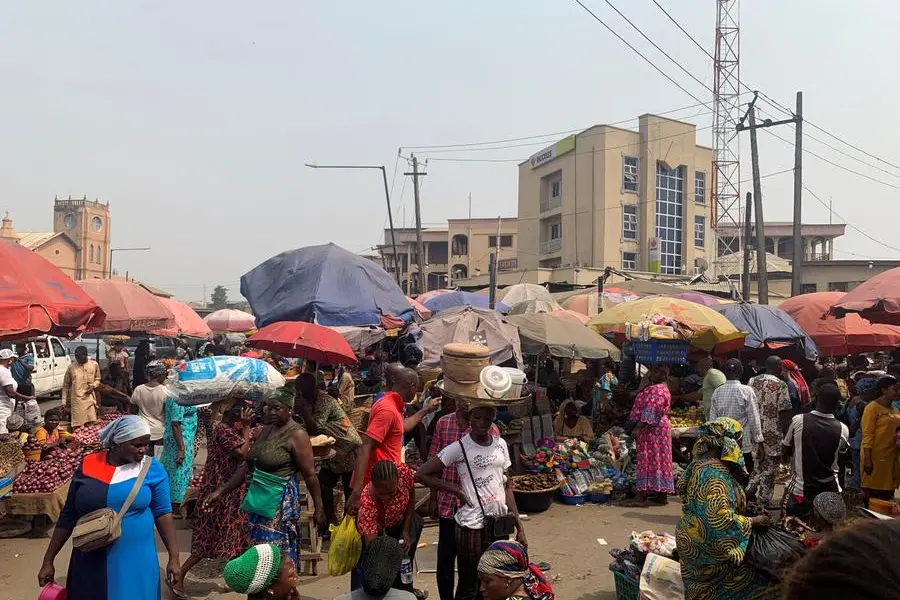PHOTO
AFTER a challenging economic year, Nigeria is set to experience a rebound in 2025, with projections pointing to a modest appreciation of the Naira to N1,550 against the US dollar and a Gross Domestic Product (GDP) growth rate of 3.6 percent.
Analysts attribute this optimistic outlook to improved foreign exchange management, increased dollar inflows, and a favorable economic environment, providing a glimmer of hope for the West African nation.
According to Financial Derivatives Company (FDC) Limited, the current exchange rate, which hovers around N1,650/US$, is expected to strengthen as key economic indicators improve.
The FDC noted that the Naira remains undervalued by 24.85 percent, with its Purchasing Power Parity (PPP) value at N1,532/US$.
While the Naira is anticipated to appreciate, non-oil foreign exchange inflows such as remittances and Foreign Portfolio Investments (FPI) may decline, potentially exerting pressure on the currency.
The FDC’s projections are based on critical economic assumptions, including a crude oil price of $70 per barrel, oil production at 1.4 million barrels per day (mbpd), gradual policy reforms, and modest Foreign Direct Investment (FDI) inflows.
At the Lagos Business School’s (LBS) Breakfast and Dinner Time Session, Bismarck Rewane and the FDC Think Tank examined Nigeria’s economic prospects, forecasting that 2025 would present challenges but show improvements compared to 2024.
The Economist Intelligence Unit (EIU) also supports this optimistic outlook, projecting stronger real GDP growth in 2025-2026, driven by the commencement of production at the Dangote Oil Refinery.
“This development is expected to reduce Nigeria’s dependence on fuel imports and boost export revenue,” said Rewane.
The anticipated production ramp-up at the refinery will address longstanding issues with Nigeria’s energy sector, offering a significant boost to economic activity.
The FDC analysts further highlighted that disinflation, expected to begin in the second quarter of 2025, along with interest rate cuts and improved exchange rate stability, will likely enhance consumer and business confidence. These factors are projected to sustain GDP growth rates of 3.6 percent in 2025 and 3.5 percent in 2026.
As inflation remains a pressing issue, fiscal and monetary policy efforts in 2025 will focus on reducing food prices and stabilizing the economy.
Measures such as extending the import duty waiver on critical goods and recalibrating inflation data through GDP rebasing and an updated inflation basket are expected to alleviate economic pressures.
The government’s initiatives to address these issues will complement broader efforts to create a more stable macroeconomic environment. The FDC analysts believe that these reforms, though gradual, will lay the foundation for sustained economic recovery.
Foreign exchange determinants are also set to improve in 2025. With increased dollar inflows and a convergence between the NAFEM (Nigerian Autonomous Foreign Exchange Market) rate and the PPP value, the Naira’s stability is expected to strengthen.
However, the projected decline in non-oil forex inflows may necessitate strategic interventions to maintain the naira’s value.
While challenges remain, including limited policy reform efforts and global economic uncertainties, experts believe Nigeria’s economic outlook for 2025 is cautiously optimistic.
They underscore the need for sustained efforts to address structural issues, foster investment, and boost domestic production to ensure a more robust and inclusive economic recovery.
As the nation looks ahead, the projected Naira appreciation and GDP growth offer hope for improved economic stability and resilience, positioning Nigeria for a better economic trajectory in the coming years.
Copyright © 2022 Nigerian Tribune Provided by SyndiGate Media Inc. (Syndigate.info).




















